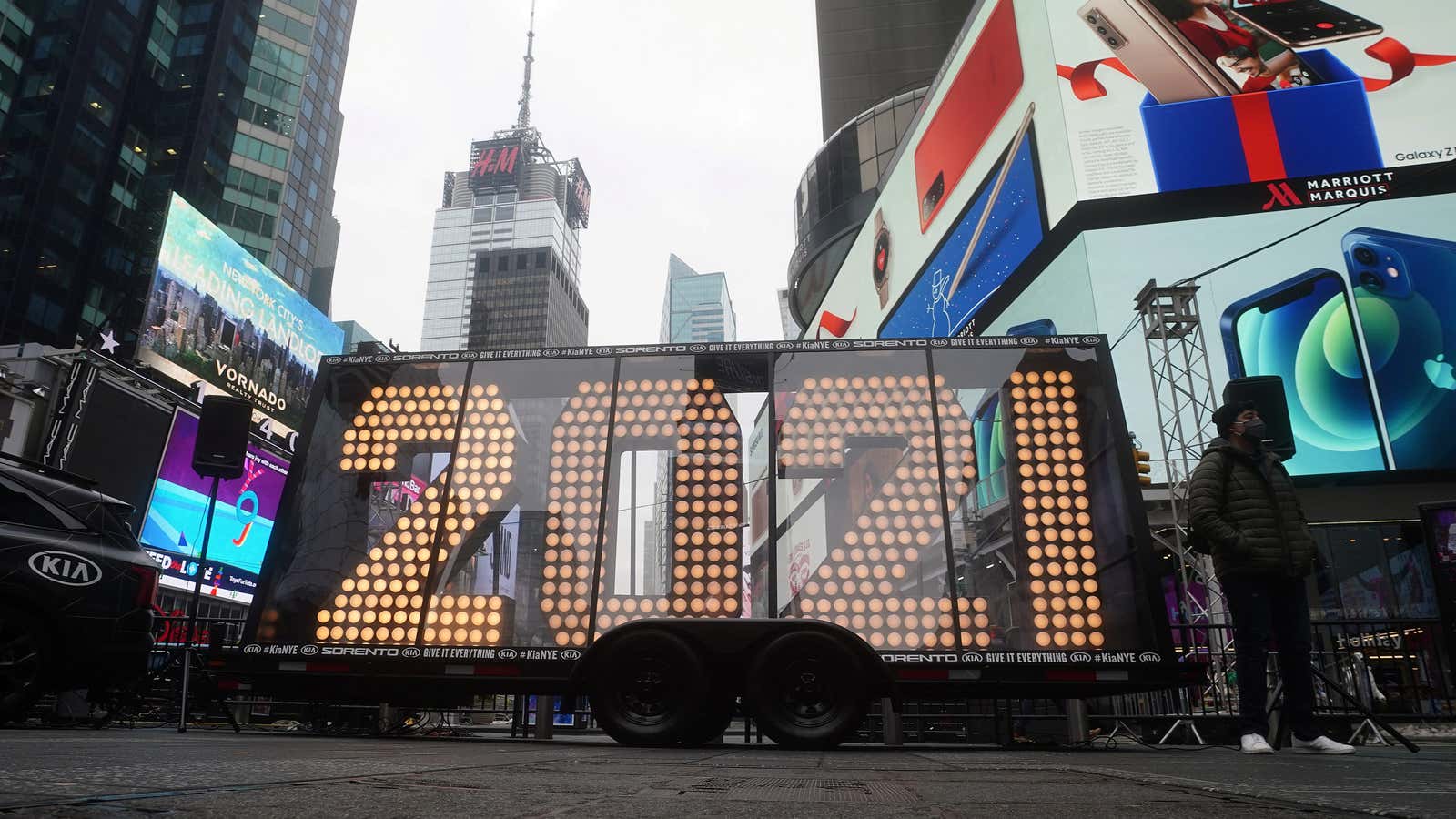In 1962, US president John F. Kennedy’s words in a Texas college football stadium set America on a course for the moon. “We choose to go to the moon in this decade and do the other things,” he told an audience more accustomed to seeing Russians in space, “not because they are easy, but because they are hard.”
Neither JFK or anyone else knew how to get there. But over the next seven years, the most impressive master plan in modern history came together. It was improvisational. Nearly half a million people and $288 billion (in today’s dollars) were coordinated on the fly toward a single goal, and it succeeded.
JFK’s moon shot has something to teach the business world in the year ahead. From a crippling pandemic to stock market booms and busts, 2020 was unprecedented. And in the face of such volatility, it’s tempting to toss out well-laid plans—focus on the moment, not the horizon. Even before Covid-19, evidence suggests only a minority of executives engaged in meaningful long-term planning.
But the most effective response to volatility is focusing even more on the destination, says Nicolaj Siggelkow, an economist and professor at the University of Pennsylvania. A clear destination allows teams to improvise their strategies to the demands of the moment, without falling into reactivity. “That’s what a master plan is,” says Siggelkow. “The genius is in both.”
Perhaps the most famous master plan of recent years is Tesla’s “Secret Tesla Motors Master Plan,” just four short sentences published on its blog in 2006:
- Build sports car
- Use that money to build an affordable car
- Use that money to build an even more affordable car
- While doing above, also provide zero-emission electric power generation options
The following years saw the company skid near bankruptcy, battle the SEC, burn billions of dollars in doomed schemes (the “alien dreadnaught” factory), and suffer setback after setback. And yet, nothing changed about those four statements. Today, Tesla’s market capitalization has eclipsed Toyota, formerly the world’s most valuable car company. It’s now working on its “Master Plan, Part Deux.”
